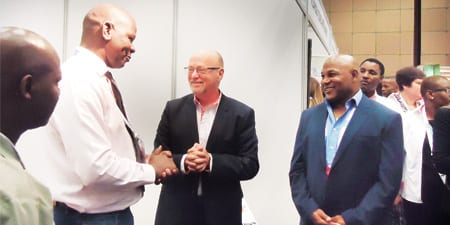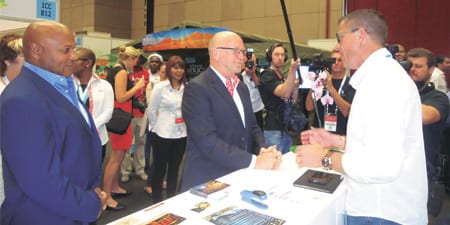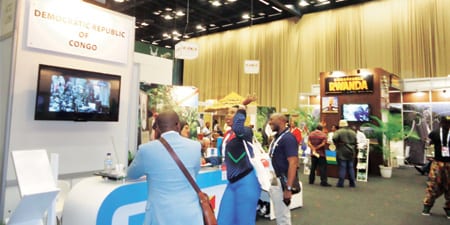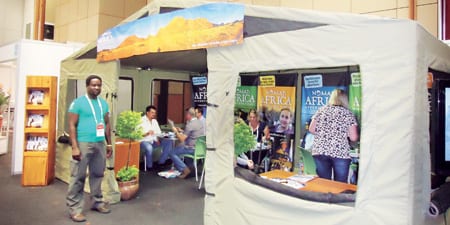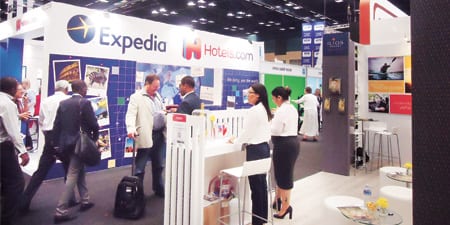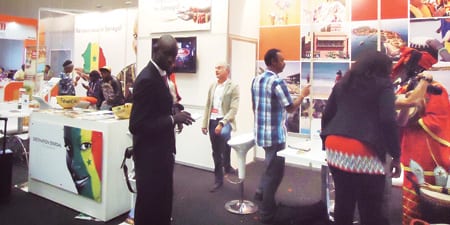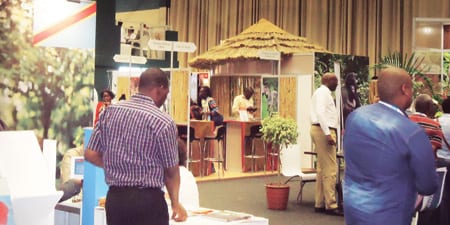Growing Africaness
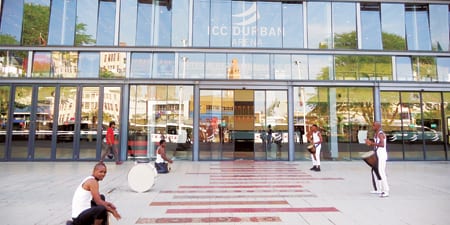
With a focus on empowering small and medium-sized enterprises in South Africa while providing a kaleidoscope of the African culture, Indaba 2015 witnessed successful meetings encouraging a continuous pipeline of exhibitor participation By Kahini Chakraborty
Inclusive growth and the need to further inculcate the culture of tourism among the people of the African continent were one of the highlights of Indaba 2015. The trade show held from May 9-11 at Inkosi Albert Luthuli International Convention Centre in Durban hosted 299 buyers from key markets – Europe, Asia, the Americas and Africa. Of those buyers, 285 were from outside South Africa and other 14 were from South Africa. Even though with a participation of over 1,000 exhibitors and approximately more than 2,000 buyers, Indaba 2015 experienced an issue of decline in the number of buyer participation. When questioned, Thulani Nzima, CEO, South African Tourism said, “We are focusing on providing more quality rather than quantity. The issue of reduction in number of buyers changing over the years can be put into context as – buyers are seen reshaping their own environment due to economic viability and consolidation of larger organisations are some of the ways in which buyers are defining themselves.” He added, “Even though there is an issue to deal with the number of buyers declining by 10 per cent compared to last year, the number of meetings at Indaba 2015 has increased compared to last year. The meetings recorded for the first two days of the event was 3700 compared to 2500 meetings last year.”
The event had 10,000 confirmed meetings. With an audience of 200 international hosted buyers, the speed marketing sessions provided business owners a four-five minute platform to sell their business to the buyers in an informative manner. This initiative was due to a strategic partnership between South African Tourism, Fair Trade Enterprise Partnership (FTT), and Tourism Enterprise Partnership (TEP) to empower small businesses with skills needed to engage buyers at Indaba 2015. Furthermore, The Online Diary and Match Making System were also key drivers in improving the quality of the event experience for exhibitors and buyers.
Making it big
At the inaugural ceremony, Derek Hanekom, national minister of tourism, South Africa informed, “Even though over the years Indaba has evolved as the biggest trade show in Africa, we will be announcing measures to make Indaba more competitive. We will be issuing co-proposal bids for prospective partners with a global reach to work with us.” The decision is construed as a step to ward off competition from other tourism industry shows like WTM Africa and We Are Africa, which have started eating into the space of Indaba.
He also added that over the last two decades the tourism sector has outstripped growth compared to other sectors. Even though 2014 was a difficult year for tourism worldwide and South Africa, yet tourist arrivals grew by 6.6 per cent and further continues to grow. “We have 1.4 million people employed in the tourism sector and are looking at 10 per cent contribution to GDP,” mentioned Hanekom.
Indaba 2015 had a participation of 20 African countries apart from South Africa. “Among the 10 million visitors that we get annually, seven million are from African countries. We need to continue growing inclusively and develop responsible and sustainable tourism for growth. For tourism promotion in this financial year the government has allocated 1.6 billion Rand,” he informed.
While Nzima said, “We have been successful as a safari destination. But now we are also looking at focusing on the culture and heritage, lifestyle and music aspects. To succeed further, we have to acknowledge that we are a part of the African continent. Our challenge is to upskill the rest of Africa and wherever possible share resources, focus on capacity building. Buyers are now looking for continental products before they look for provincial products. We are working on providing seamless travel and ease visa regulations.” On questions being raised about the ‘unfriendly tourism’ visa regime of South Africa, Hanekom mentioned that there are ongoing discussions to find solutions to the issue. While Nzima added that the country’s president himself has asked for a review of the current provisions to the Home Department. Referring India’s decision to extend E-visa for visitors, Nzima said that the tourism minister of South Africa is pushing for visa free or visa-on-arrivals system for Indian travellers to improve travel between the two countries.
When asked about the importance of the India market, representatives from the folllowing countries: Republic of Rwanda, Republic of Senegal, Uganda Tourism Board, Tanzania Tourism Board, Kenya Tourism Board informed that even though European and the North American countries remain their source markets, they realise the importance of the India market and are looking forward to welcoming travellers from India as well.
Examining tourism
The second and third day of Indaba 2015 had four distinct media briefings to examine tourism contribution to the South African economy- importance of small businesses, the growimg importance of inter-continental partnerships and collaboration for growth of the African tourism sector. The panelists for the session ‘Bringing Small Businesses into the Mainstream Tourism Economy’ included Salifou Siddo, CEO, Tourism Enterprise Partnership (TEP); Shaheed Ebrahim, owner, Escape to the Cape; Peterson Mahlangu, owner, Fundani Tours; Thiofli Ravele, business development support manager, Free Trade Tourism (FTT); and Marcelle Bosch of Madi A Thavha Mountain Lodge. The deliberations on this panel discussion focussed on the need to be proactive and not reactive when entering into the tourism industry. For small businesses it is imperative to work with the communities in a responsible and sustainable manner. Collaborative support and mentoring is also essential for introduction of unique products to survive in the competitive market.
The second topic of discussion ‘Growing up for Africa’ had panelists – Marcel Von Aulock, Group CEO, Tsogo Sun; Dr Petrus De Kock, general manager – research, Brand South Africa; and Cherae Robinson, CEO, Taste Makers Africa. This session highlighted that the government has been supportive of every tourism product as this sector is a huge contributor to the economy and helps in job creation. There has to be ethical ecological conservation and many African countries are following responsible tourism practices. While the last session ‘Indaba Bid Parties Wrap Up’ panelists included: Ndabo Khoza, CEO, Tourism KwaZulu-Natal; Nzima; Lindiwe Rakharebe, CEO, Durban ICC Board; and Philip Sithole, CEO, Durban Tourism. Nzima pointed out that there has to be a continuous pipeline that has to be based on value for money that buyers should have. “The decline in the number of buyers can be attributed to the changing business environment and consolidation processes taking place in large organisations. We want to focus on quality rather than quantity as we have built Indaba as an equity and don’t want to sell it. We had over 10,000 meetings confirmed for the event,” emphasised Nzima. While Sithole added that all events that take place in the city lead to job creation. “Direct spending is estimated at 50 million Rand. The event has given us the number of travellers that we were expecting,” mentined Sithole.
South Africa is now looking beyond safaris and focusing on culture and heritage. Could you elaborate on the other unique products that are on offer for travellers?
 Safari, scenic beauty and adventure have always been the cornerstone of the South African tourism product offering. The experiential nature of South Africa’s tourism product – you ‘do’ South Africa, you are not a passive spectator – has always appealed to the India market. Over the years our product offering has evolved and we have moved from a solely ‘do South Africa’ to a ‘meet South Africa’. Our Indian travellers now want to know us – they want to know about our cultural heritage (and they are always surprised at how you can see the influence and expressions of South African Indians manifesting themselves across all cultures in South Africa – we merge and blend and in the end you have this rich tapestry of South Africaness), our food, our music, the cricketers we rate.
Safari, scenic beauty and adventure have always been the cornerstone of the South African tourism product offering. The experiential nature of South Africa’s tourism product – you ‘do’ South Africa, you are not a passive spectator – has always appealed to the India market. Over the years our product offering has evolved and we have moved from a solely ‘do South Africa’ to a ‘meet South Africa’. Our Indian travellers now want to know us – they want to know about our cultural heritage (and they are always surprised at how you can see the influence and expressions of South African Indians manifesting themselves across all cultures in South Africa – we merge and blend and in the end you have this rich tapestry of South Africaness), our food, our music, the cricketers we rate.
– Hanneli Slabber, Country Manager – India, South African Tourism
Will we see the re-introduction of direct flight connectivity of South African Airways from India in the future?
 The current codeshare with Etihad Airways is a part of our long term turnaround strategy and is aimed at helping us optimise our routes. With the help of the codeshare we were able to enhance connectivity between Johannesburg and six cities in India through 12 daily flights from India. Furthermore, we have seen a positive response from our travel partners and passengers on the new arrangement and we plan to continue with this in the near future.
The current codeshare with Etihad Airways is a part of our long term turnaround strategy and is aimed at helping us optimise our routes. With the help of the codeshare we were able to enhance connectivity between Johannesburg and six cities in India through 12 daily flights from India. Furthermore, we have seen a positive response from our travel partners and passengers on the new arrangement and we plan to continue with this in the near future.
– Sajid Khan, Country Manager – India, South African Airways


